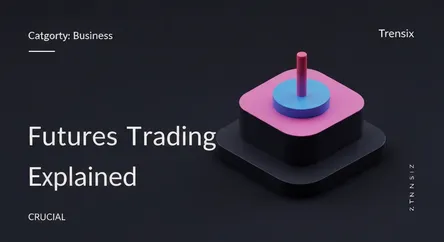Business
Futures Trading Explained

Discover futures trading, where contracts are made to buy or sell assets at a future date. Learn how this high-stakes financial tool works.
What is it?
Futures trading involves standardized legal agreements, known as futures contracts, to buy or sell an asset at a predetermined price on a specific future date. These contracts are traded on regulated exchanges and can cover a wide range of assets, from physical commodities like crude oil and corn to financial instruments like stock indices and currencies. Market participants are generally split into two groups: hedgers, who use futures to protect against price risk, and speculators, who bet on price movements to seek profit.
Why is it trending?
Futures trading is gaining traction due to high leverage, which allows traders to control a large position with a relatively small amount of capital, magnifying potential returns and risks. Increased global market volatility, particularly in energy and agricultural sectors, creates numerous opportunities for speculators. The rise of accessible online trading platforms has also democratized access, drawing in more retail investors. Businesses also increasingly rely on futures to hedge against unpredictable price swings in an uncertain economic climate, ensuring operational stability.
How does it affect people?
For individuals, futures trading presents a high-risk, high-reward investment opportunity. Beyond the trading floor, futures markets are critical for price discovery, helping to determine the market value of essential goods. This impacts everyday life by influencing the prices consumers pay for fuel, food, and other products. For businesses like farms or airlines, futures provide a vital tool to lock in prices for their goods or necessary resources, which helps stabilize their finances and, in turn, the broader economy.